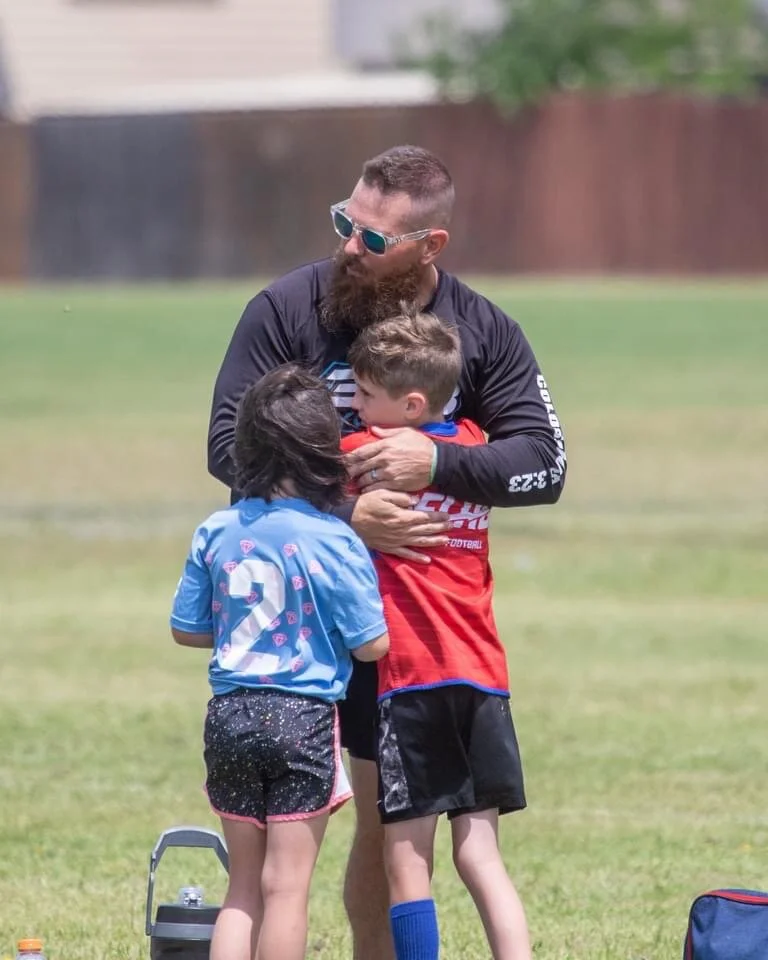


Drawing Up Flag Football Plays on A Friday Night
Isn’t it amazing that the things that we hold against ourselves or the things we define ourselves by aren’t the way in which we will be recognized as disciples of Christ? Does that mean those things don’t matter? No. But it does mean that they are secondary. Sure we can use what we have and what we know to better show love to those around us, but in the end the key characteristic of discipleship is not giving money to churches or speaking in front of audiences about Jesus or making sure our bumper stickers have a fish on them. No, THE ONE DEFINING CHARACTERISTIC IS LOVE.

Knowing the Destination Aids in the Journey: Defining Ourselves by Our Healthy Characteristics
I learned something very early in my collegiate coaching career: there are a million different things that can go wrong and only a very few ways they can go right. When I was young I would try to examine all of the issues and correct them one by one. Often, when I would correct one issue it would reveal another issue or, even worse, CAUSE another problem. I was so busy finding and fixing problems that I often missed all the things that were going right. Sometimes I’d drill something right through “right” back into another version of wrong.


What am I really expecting from worship?
So there’s a Cody Carnes song called Nothing Else. Cody Carnes is one of my favorite musicians right now because so much of what he sings about seems to really speak directly into my heart and my life. There’s a line this song that says “I’m not here for blessing, Jesus you don’t owe me anything and and nothing you can do I just want you.” It’s a really amazing line that sums up a really big point about the ‘why’ of worship.

The Maximization of Relationship in Sharing Faith
You know what I find wrong with most of the missional training out there?
The emphasis in delivery. Now here’s the thing. I’m not saying that the delivery is wrong. I’m not critiquing the focus of the theology or the method or the path that they take to share. What I am critiquing is the focus of the training.
The focus of the training is on what to say. That’s not inherently incorrect. Most people struggle with missions and sharing their faith because they don’t feel prepared. Not feeling prepared comes in two forms. First, they don’t think they know what to say. Second, they don’t think they are qualified to say it even if they do know what to say. Overcoming these two obstacles is a major victory in any training session. Getting people to feel like they CAN share their faith is really about 95% of the battle because the biggest issue in missional action is not what people are saying (not to downplay the importance of proper understanding) but that most people simply aren’t saying anything.
I propose that there is a missing piece in most trainings on how to share the gospel: the emphasis on listening. We train and train on what to say but show little understanding of how to teach people how to listen, what to listen for, when to talk, and how apply what they have been taught in what they should say.

Making Prayer Feel Immediate
How do you root yourself in prayer in the moment?
How do you make prayer real and present and almost tangible? Whether we want to admit it out loud or not we all face the issue of our prayers feeling very etherial. We feel as if we are praying, but losing the immediacy of the moment. Not in a begging sense, but in a sense of our presense there with God. That we aren’t dialing up a long distance phone call, but rather turning to a person present in the room with us.
Often we place that at the feet of “not feeling near to God” or “not feeling God’s presence” but it is much more a reflection of our hearts, our intentions, and-quite frankly-our attention spans. Our prayers often feel hollow and ineffective because, well maybe because they are. We are rubbing the genie lamp but nothing is happening. We keep asking God to fix this, and do that and yet never see His presence at work and continue to feel a widening distance between ourselves and His heart.
So we come back to the heart of the matter-our heart. At the end of Psalm 139 David pulls out this well known line.
23 Search me, God, and know my heart;
test me and know my anxious thoughts.
24 See if there is any offensive way in me,
and lead me in the way everlasting.
